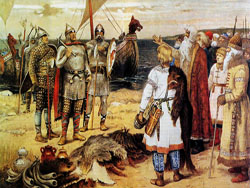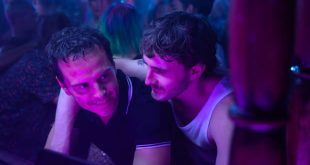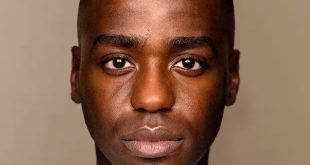
Why the term “Kievan Rus’ cannot be understood the wrong way?
Over the past two years an important part of Ukrainian political discourse became arguments about the antiquity of the Ukrainian state compared to the Russian. Famous saying of Peter Poroshenko: “When Peter I was cutting Russia’s window to Europe, Ukraine Mazepa went to Europe through a door — not the best example of alternate history: the President is not to follow what they write his compatriots in social networks and Internet forums. The most common myth brilliantly articulated the reader of one of the Ukrainian news media: “In the Ancient Kievan Rus spoke a language that was much closer to the modern Ukrainian language rather than Russian. In this regard, perhaps it would be better to call it old Ukrainian and old Russian Kievan Rus ‘ … the account goes more than a Millennium and Moscow — a few centuries. Half a Millennium of slavery and continuous kotoroya created this nation, tenacious of the heir to the barbarian hordes”.
In fact that Ukrainians are true Slavs and Russian — oslavyanivshiesya Finno-Ugric peoples, believe many supporters of the Maidan. Both in Ukraine and in Russia: the Ukrainians, the Russians never tire of quoting Alexei Tolstoy: “There are two Russias. The first Kyiv has its roots in the world, but at least in European culture. Ideas of good, honor, freedom, justice, understood the Rus as they knew it, the entire Western world. And there is the other Russia — Moscow. Is Rus of the Taiga, Mongolian, wild animal. This made Russia to its national ideal of bloody despotism and savage ferocity. This Moscow Russia from ancient times was, is and will be a complete rejection of everything European and a fierce enemy of Europe”. The fact that Tolstoy obviously in opposition to each other two different periods of Russian history, they are not confused: well, obviously the Soviet classic about present-day Ukraine and Russia wrote, isn’t it obvious?
Who is closer to the ancestors of mammals — a dog or a horse? Who first climbed down from the tree — a man or a chimpanzee? Who is closer to the first organism that arose in its primeval soup of ancient Earth — Russian or Ukrainian? From a historical point of view, such questions are absurd. Let’s look at why.
Where villages Rurik?
There are two main theories as to the origin of statehood at East Slavs. According to the Norman theory, based on Russian Chronicles, the state of the ancestors of Russians, Ukrainians and Belarusians was created by the Vikings, the Normans, whose princes Slavs themselves invited to reign in Russia. For more Patriotic version, which was considered the only correct one in the Soviet textbooks, the state of the Eastern Slavs established themselves, and calling Vikings — no more than fiction. Now historians recognize that between these two points of view is quite possible compromise — political entities arose among the Slavs, and that their princes later became the Normans, is not surprising: the norm for medieval Europe it was considered the situation when the power in the kingdoms belonged to the alien dynasties, ethnically different from the majority of subjects. England, for example, much of the 11th century tried to slip the collar from those of the Vikings, the Vikings — in the end of the Anglo-Saxon kings and could not defend the independence of the island.
If you believe the chronicle, the Vikings established the statehood is not in Kiev and in Novgorod, “And elect three brothers with their birth, and took with them all the Rus and came and sat senior Rurik in Novgorod, and another Sineus — in Beloozero, and the third, Truvor — in Izborsk. And from those Vikings nicknamed the Russian land.” In the middle of the 9th century Kiev was not part of the old Russian state, the largest cities of which was Novgorod, Beloozero, Rostov, Murom, etc. Kiev Varangian generals captured at least twice: it is first conquered on the way to Constantinople vigilantes Rurik Askold and dir, and 882, the Kievan rulers had killed a relative of Rurik Prince Oleg. That Oleg made Kiev is an important point on the way from the Varangians to the Greeks — their capital. The great-grandson of Oleg was a Prince of Vladimir, with whom most people associate the heyday of Kievan Rus. If the Norman theory is correct, then the question of who had gained the state Russian or Ukrainian, absurd: and those and others “got it as a gift” from the conquerors, and Novgorod the Vikings made happy before Kiev.
By the way, where did the term ” Kievan Rus? In the annals he is not: he first appears in historians of the 19th century as a narrow marking of the Principality of Kiev. As indicate the historical period in the formation of the East Slavic state, this term survives in the Stalin years – in particular, by the eponymous work of academician Boris Grekov — released in 1939 monograph “Kiev Rus”. The adoption of this term was not without ideological reasons — in the 1930-ies the official propaganda strongly supported the idea of the unity of the East Slavic peoples. If the Norman theory is wrong and statehood among the Slavs originated independently, that means it crystallised around several centres, the largest of which was Novgorod and Kiev, and not only Kiev. And since the beginning of the 12th century, Kiev is gradually losing its role as the political center of Rus in 1169 mayhem of the city, hosted by the troops of Vladimir Prince Andrey Bogolyubsky, opens an era when “the mother of Russian cities” fearlessly smash fighting among themselves Russian princes.








